Image of 1986 Chevrolet Camaro, Note: These illustrations use artistic license and may differ from actual historical models.
Performance Metrics
Fundamental Metrics
Emotional Appeal
MMP Rating
| Engine Specifications | |
|---|---|
| Engine Options: | 2.8L V6, 5.0L V8 |
| Displacement Range: | 2.8L-5.0L |
| Horsepower Range: | 135-190 hp |
| Torque: | 145-240 lb-ft |
| Compression Ratio: | 8.9:1 (V6), 9.5:1 (V8) |
| Ignition System: | Electronic |
| Cooling System: | Liquid-cooled |
| Performance Specifications | |
| 0-60 Time: | 8.0-6.0 seconds |
| 1/4 Mile Time: | 16.0-14.5 seconds |
| Top Speed: | 125 mph |
| Transmission and Drive | |
| Drive Type: | RWD (Rear Wheel Drive) |
| Transmission Type: | 4-speed automatic, 5-speed manual |
| Fuel and Efficiency | |
| Fuel System Type: | Fuel Injection |
| MPG: | 17 city / 25 highway |
| Dimensions and Brakes | |
| Brakes: | Front Disc / Rear Drum |
| Wheelbase: | 101.0 inches |
| Weight: | 3,000-3,500 lbs |
Note: Specifications for classic cars are given to the best of our ability, considering the limited and variant data available.
1986 Chevrolet Camaro: A Blend of Muscle and Modernity
The 1986 Chevrolet Camaro is not merely a car; it's a cultural icon that encapsulates the spirit of American muscle in an era of transition. Born from the ambition of Chevrolet to dominate the pony car market, the Camaro was introduced to the world in 1966, with the '86 model sitting squarely in the middle of its third generation. This particular year marked a period when the Camaro was not just a performance vehicle but also a canvas for technological innovation. A unique fact that car enthusiasts might find intriguing is that the 1986 Camaro was one of the chosen pace cars for the Indianapolis 500, cementing its place in racing lore.
Design and Innovation
The exterior styling of the 1986 Camaro is a testament to 80s automotive design, with its sharp lines, aggressive stance, and aerodynamic profile. The car's interior featured a blend of functionality and comfort, with materials that ranged from standard cloth to optional leather seating surfaces. Technological features for its time included electronic fuel injection and a modern dashboard with digital readouts on certain models. Available color options spanned from vibrant reds to deep blues, with black and white being popular choices among enthusiasts. The most iconic body style was undoubtedly the IROC-Z coupe, with its ground effects package and distinctive decals.
Historical Significance
The 1986 Camaro wasn't just another model year; it represented an era where performance began to re-emerge after a period of stringent emissions regulations. It set itself apart with its affordable performance and adaptability to both road and track conditions, influencing a generation of sports cars that followed.
Performance and Handling
Under the hood, the '86 Camaro could be equipped with various powertrains, but it was the 5.0-liter V8 in the IROC-Z that provided exhilarating performance, capable of hitting 0-60 mph in under 7 seconds—a respectable figure for its time. Handling was equally impressive, with suspension tuning that allowed drivers to confidently navigate both tight corners and long stretches of highway. The driving experience was visceral; from the roar of the V8 engine to the feedback through the steering wheel, it was an engagement between man and machine.
Ownership Experience
The Camaro found its place in many garages serving as daily drivers, weekend cruisers, or even track competitors. Its reliability was commendable for its era, and parts availability made maintenance relatively straightforward for those with basic mechanical skills.
Fun Facts
A lesser-known fact about this model year is that it saw the introduction of a modern Bosch ABS system on select models—a rarity at the time. While some critics claimed it lacked sophistication compared to European sports cars, it held records in sales within its class and became a favorite among American muscle enthusiasts.
Collector's Information
Today, an '86 Camaro can fetch anywhere from $5,000 for a well-used example to upwards of $20,000 or more for pristine IROC-Z models or those with significant provenance. Production numbers were substantial with tens of thousands produced; however, finding one in excellent condition has become increasingly challenging. As such, prices are generally appreciating for well-maintained or restored examples.
Conclusion
The 1986 Chevrolet Camaro stands as a testament to American ingenuity during an age when performance began to claw its way back into the hearts of car lovers. Its legacy is etched into automotive history as a symbol of resurgence and adaptability—a true classic that continues to turn heads and stir souls on roads worldwide.
1986 Chevrolet Camaro Catalog of Parts
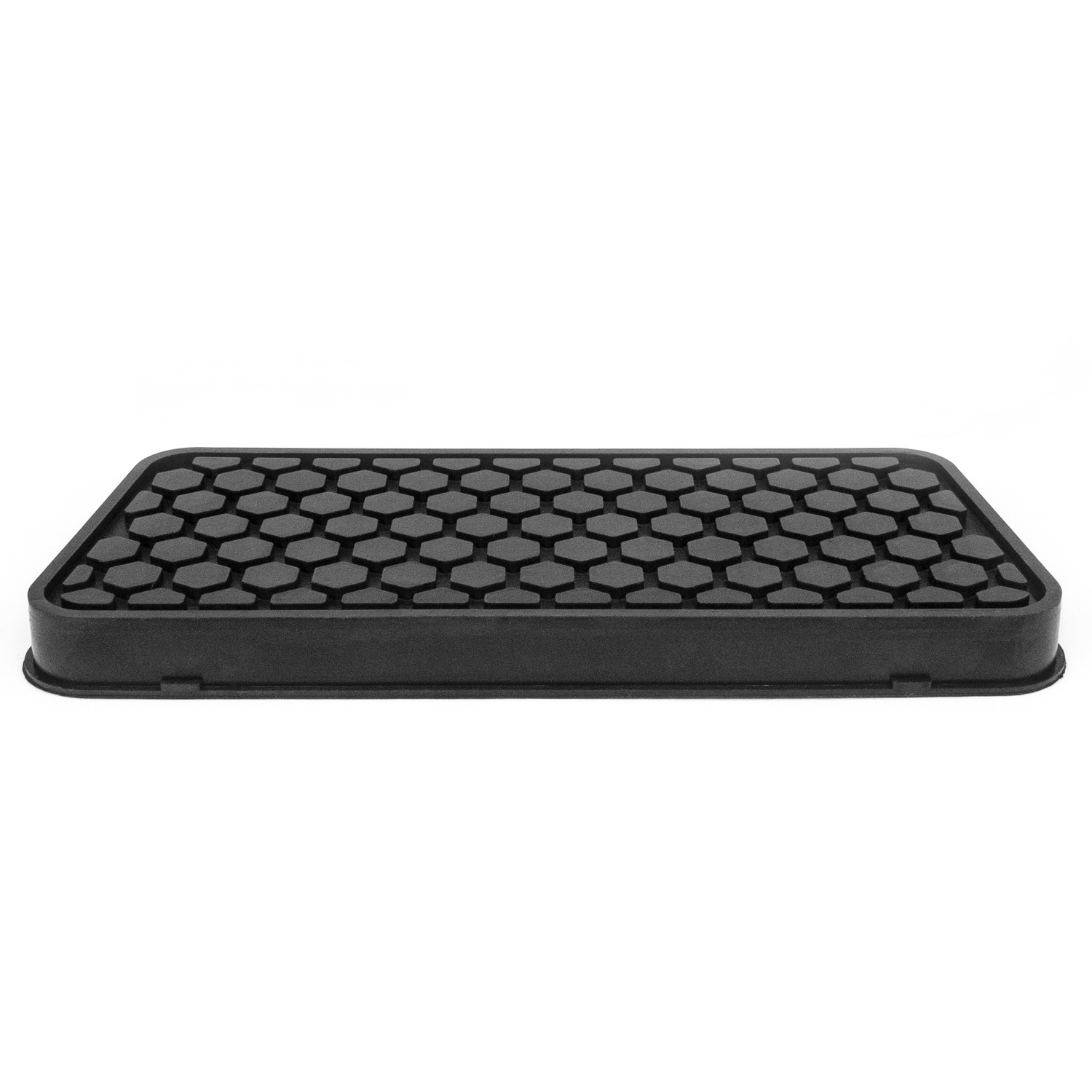 1986 Chevrolet Camaro Brake Pedal Pad, 82-92 GM F Body With Automatic Transmission, Each-CB 101-FBrake Pedal Pad, 82-92 GM F Body With Automatic Transmission, 2-3/8" wide X 5-5/8" long, Each. Replaces OEM # 14038654.
1986 Chevrolet Camaro Brake Pedal Pad, 82-92 GM F Body With Automatic Transmission, Each-CB 101-FBrake Pedal Pad, 82-92 GM F Body With Automatic Transmission, 2-3/8" wide X 5-5/8" long, Each. Replaces OEM # 14038654.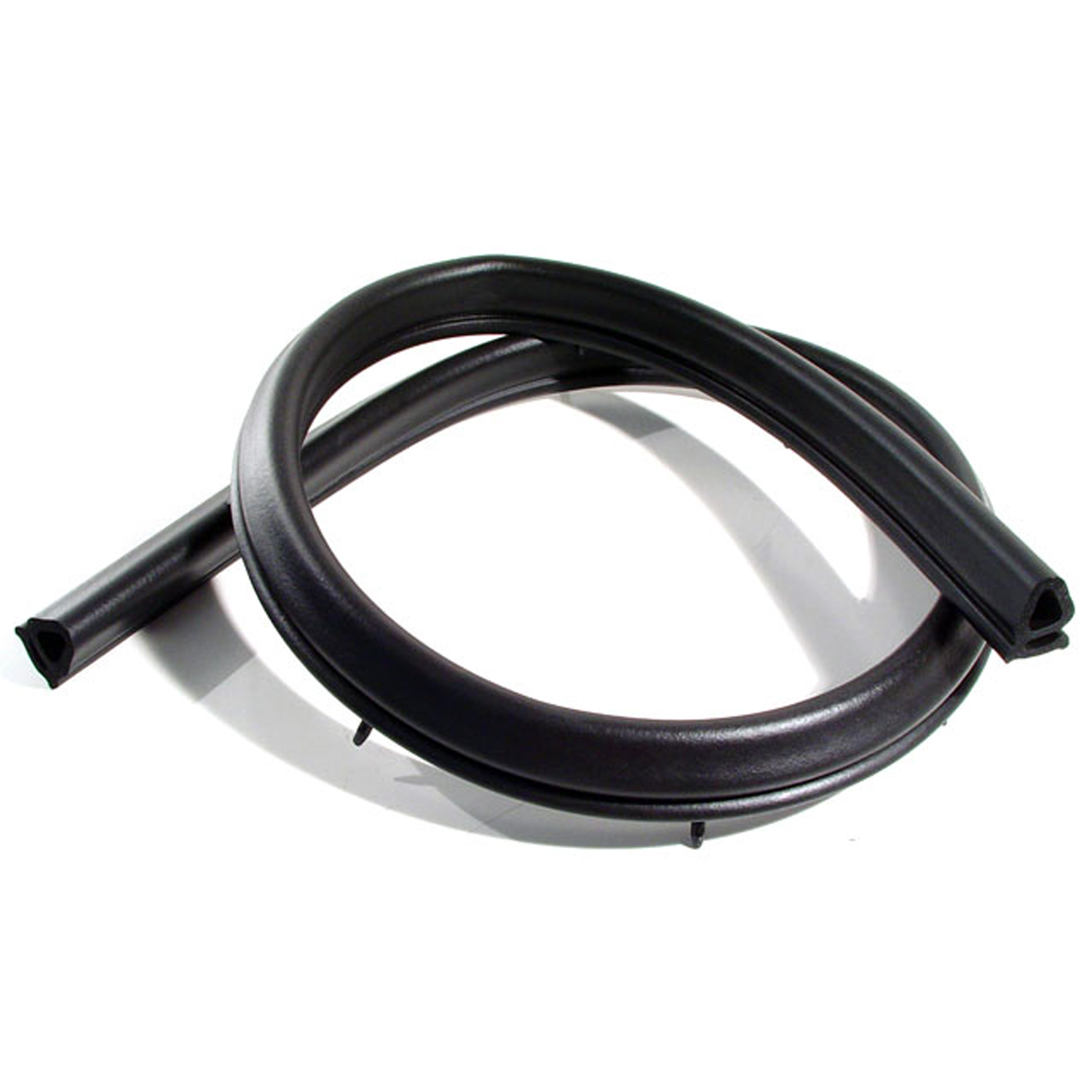 1986 Chevrolet Camaro Hood to Cowl Seal. 51-1/2" long. Replaces OEM #14019217-CS 15-AHood to Cowl Seal. 51-1/2" long. Replaces OEM #14019217. Each
1986 Chevrolet Camaro Hood to Cowl Seal. 51-1/2" long. Replaces OEM #14019217-CS 15-AHood to Cowl Seal. 51-1/2" long. Replaces OEM #14019217. Each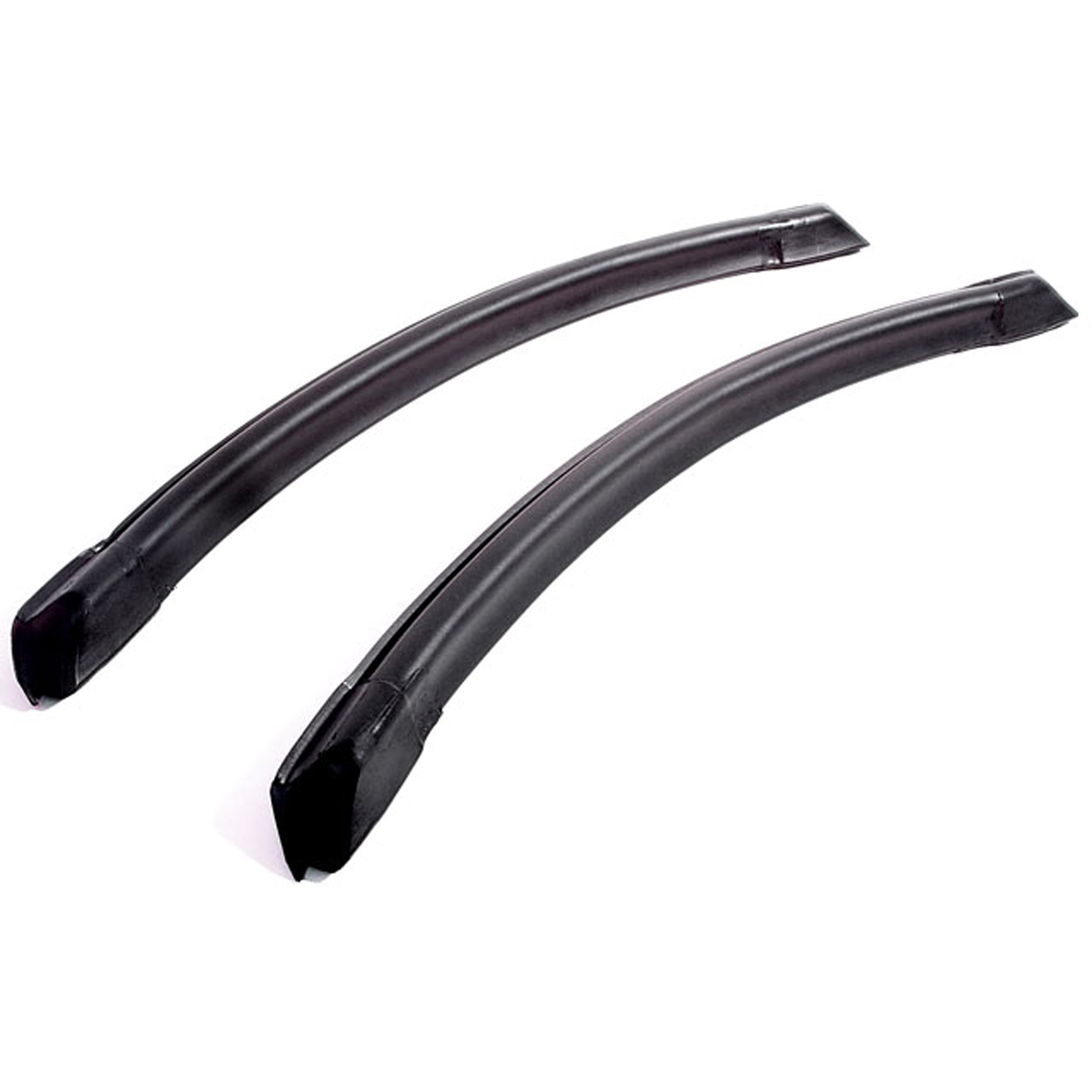 1986 Chevrolet Camaro T-top Side Rail Seals. Each piece 25" long. Pair-ELP 7003T-top Side Rail Seals. Each piece 25" long. Pair
1986 Chevrolet Camaro T-top Side Rail Seals. Each piece 25" long. Pair-ELP 7003T-top Side Rail Seals. Each piece 25" long. Pair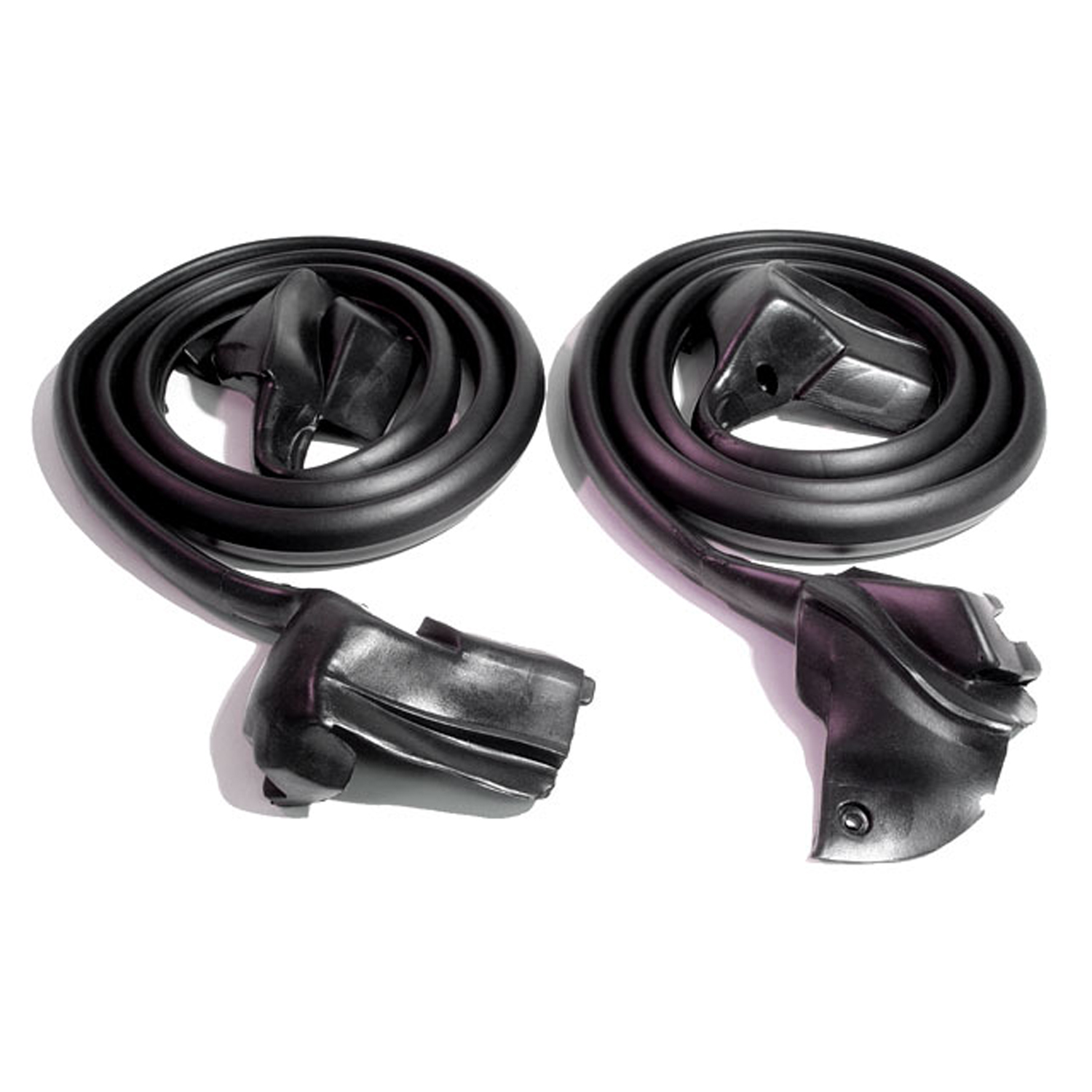 1986 Chevrolet Camaro Molded Door Seals with Clips and Molded Ends. Pair R&L-LM 22-CMolded Door Seals with Clips and Molded Ends. Pair R&L
1986 Chevrolet Camaro Molded Door Seals with Clips and Molded Ends. Pair R&L-LM 22-CMolded Door Seals with Clips and Molded Ends. Pair R&L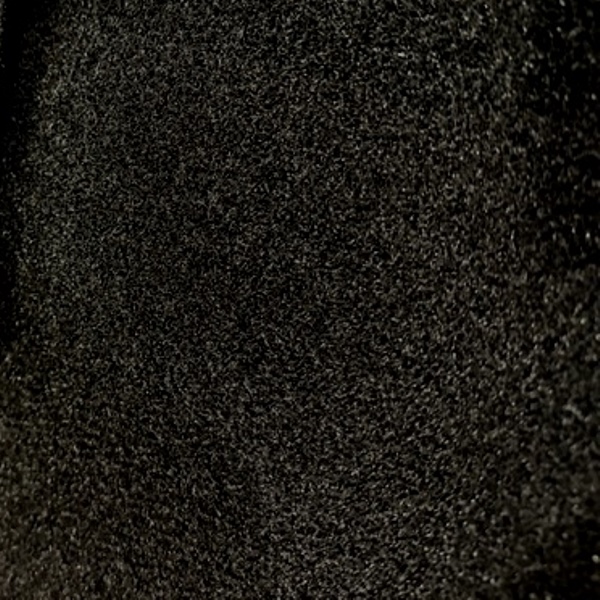 1986 Chevrolet Camaro Trunk Liner. Loose weave, jet black. 50" wide-M 30Trunk Liner. Loose weave, jet black. 50" wide. Sold by the foot
1986 Chevrolet Camaro Trunk Liner. Loose weave, jet black. 50" wide-M 30Trunk Liner. Loose weave, jet black. 50" wide. Sold by the foot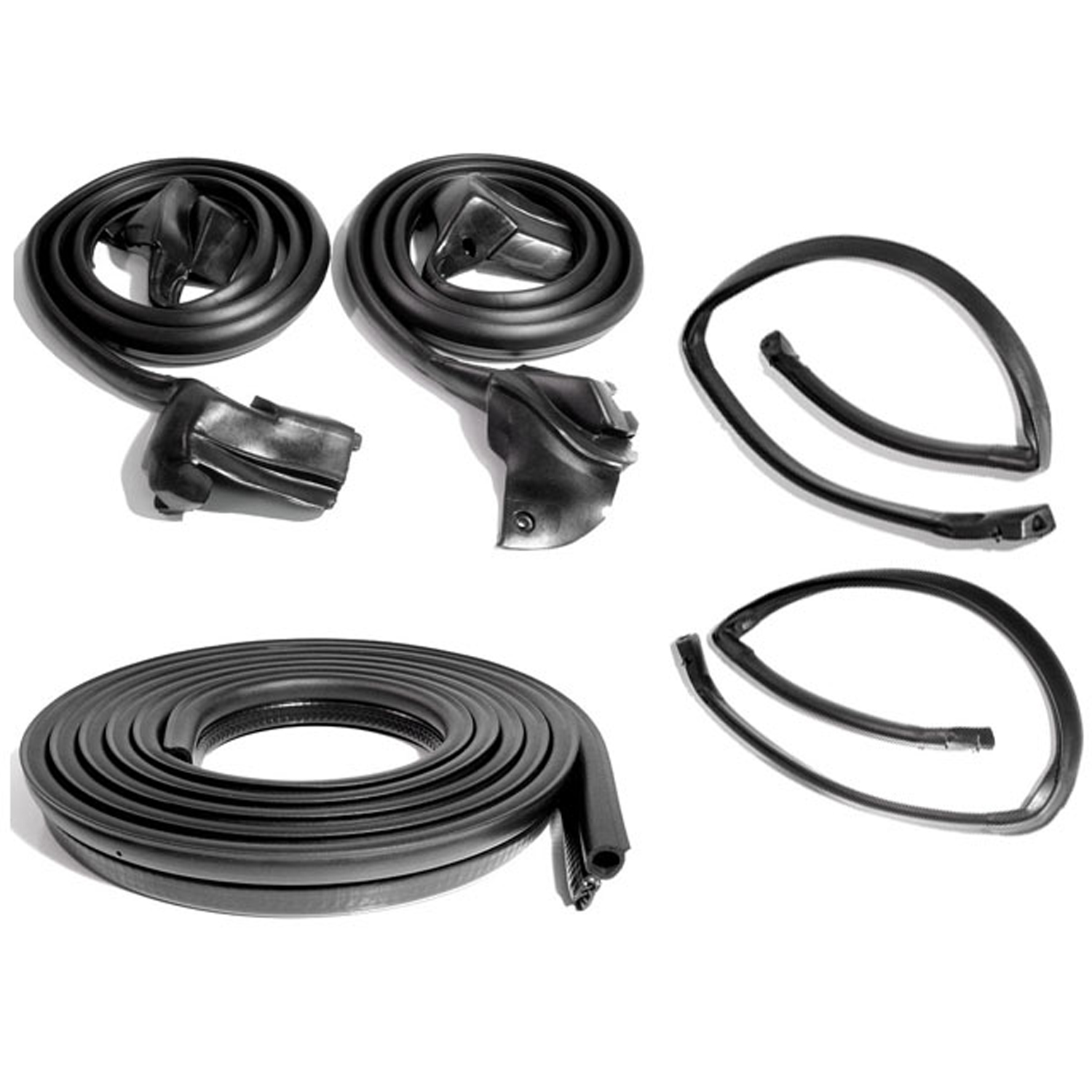 1986 Chevrolet Camaro Basic kit. '82-'92 Camaro and Firebird 2-door coupe-RKB 1900-105Basic kit. '82-'92 Camaro and Firebird 2-door coupe. Door (LM 22-C), roof-rail (RR 7003) and trunk (TK 46-F) seals. 5-piece set.
1986 Chevrolet Camaro Basic kit. '82-'92 Camaro and Firebird 2-door coupe-RKB 1900-105Basic kit. '82-'92 Camaro and Firebird 2-door coupe. Door (LM 22-C), roof-rail (RR 7003) and trunk (TK 46-F) seals. 5-piece set.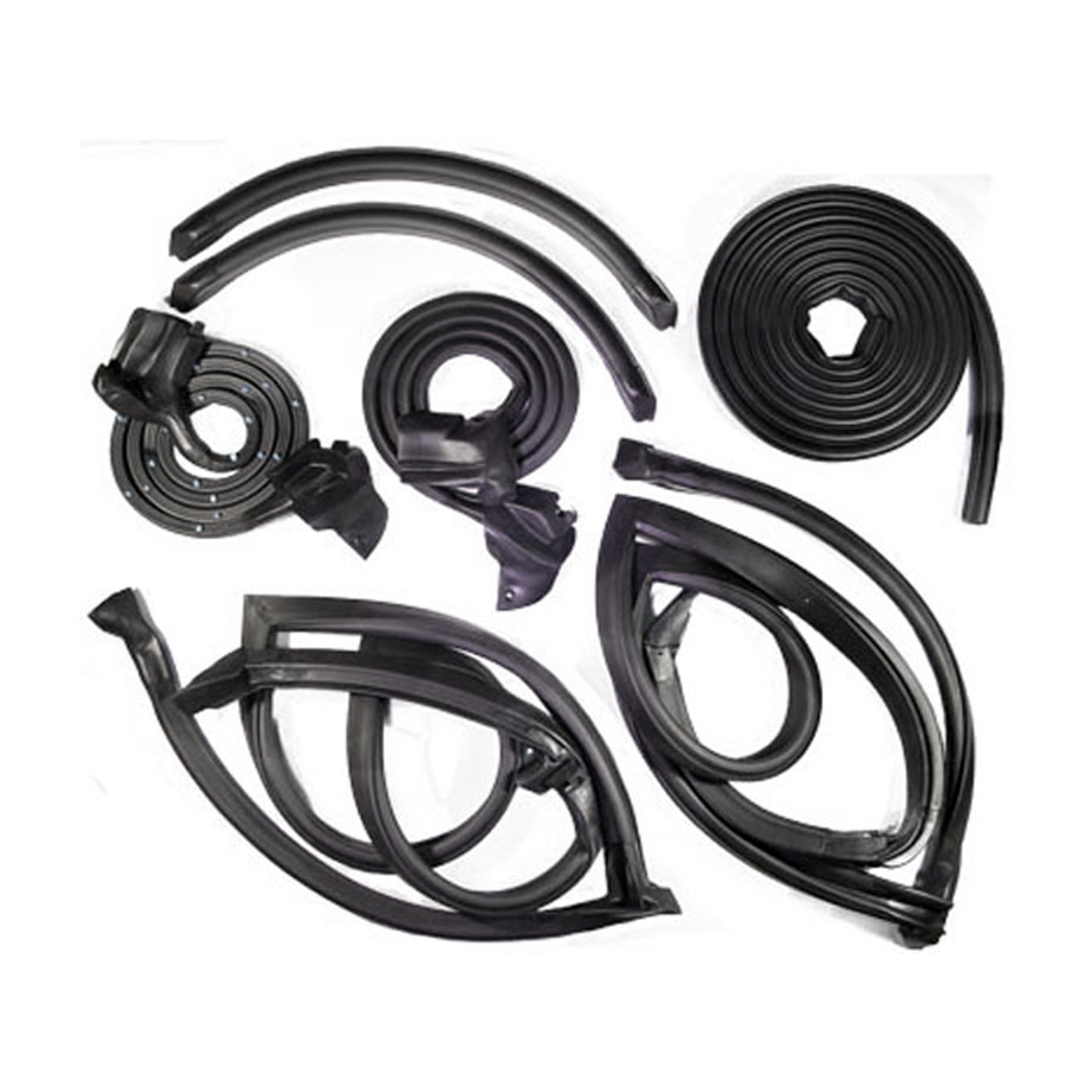 1986 Chevrolet Camaro Basic Kit. For models with factory t-top option-RKB 2001-118Basic Kit. For models with factory t-top option. Doors (LM 22-C), T-Top to Body (TP 7003), T-Top Side (ELP 7003), Trunk (TK 46-F), Seals.
1986 Chevrolet Camaro Basic Kit. For models with factory t-top option-RKB 2001-118Basic Kit. For models with factory t-top option. Doors (LM 22-C), T-Top to Body (TP 7003), T-Top Side (ELP 7003), Trunk (TK 46-F), Seals.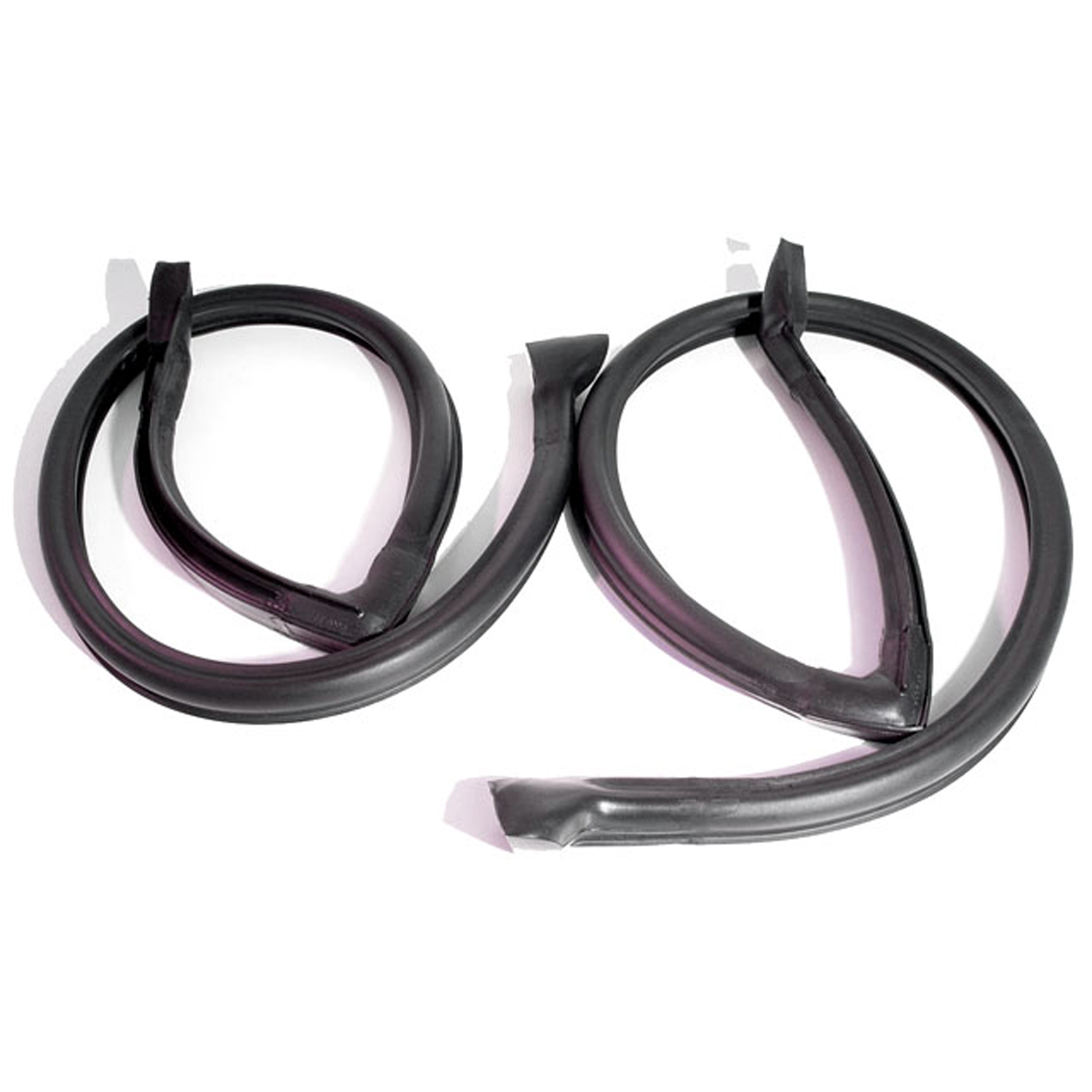 1986 Chevrolet Camaro Roof Rail Seals with Molded Ends. For 2-door hardtop-RR 7003Roof Rail Seals with Molded Ends. For 2-door hardtop. Pair R&L
1986 Chevrolet Camaro Roof Rail Seals with Molded Ends. For 2-door hardtop-RR 7003Roof Rail Seals with Molded Ends. For 2-door hardtop. Pair R&L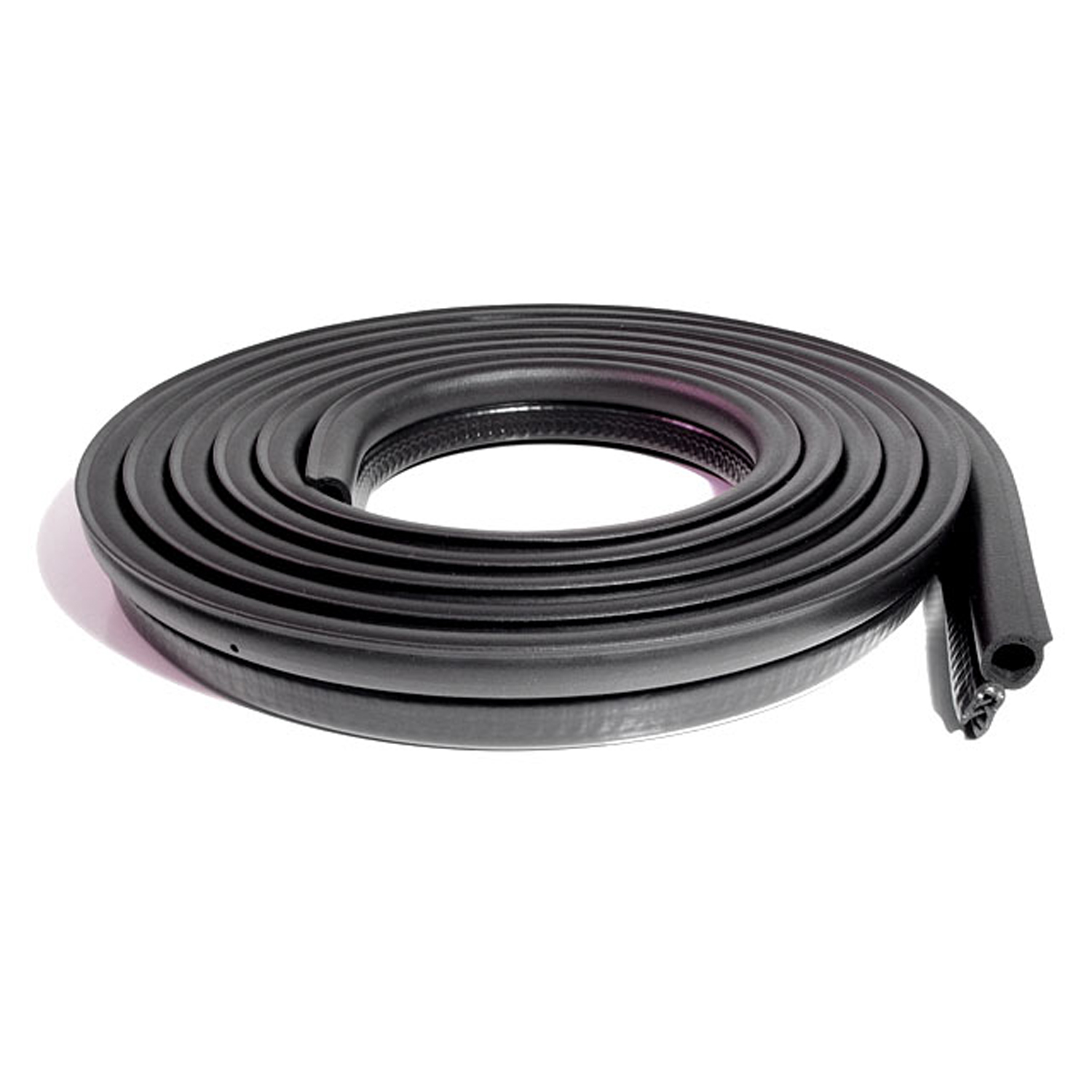 1986 Chevrolet Camaro Trunk Seal for Hatchback. 16' Long. Each-TK 46-FTrunk Seal for Hatchback. 16' Long. Each
1986 Chevrolet Camaro Trunk Seal for Hatchback. 16' Long. Each-TK 46-FTrunk Seal for Hatchback. 16' Long. Each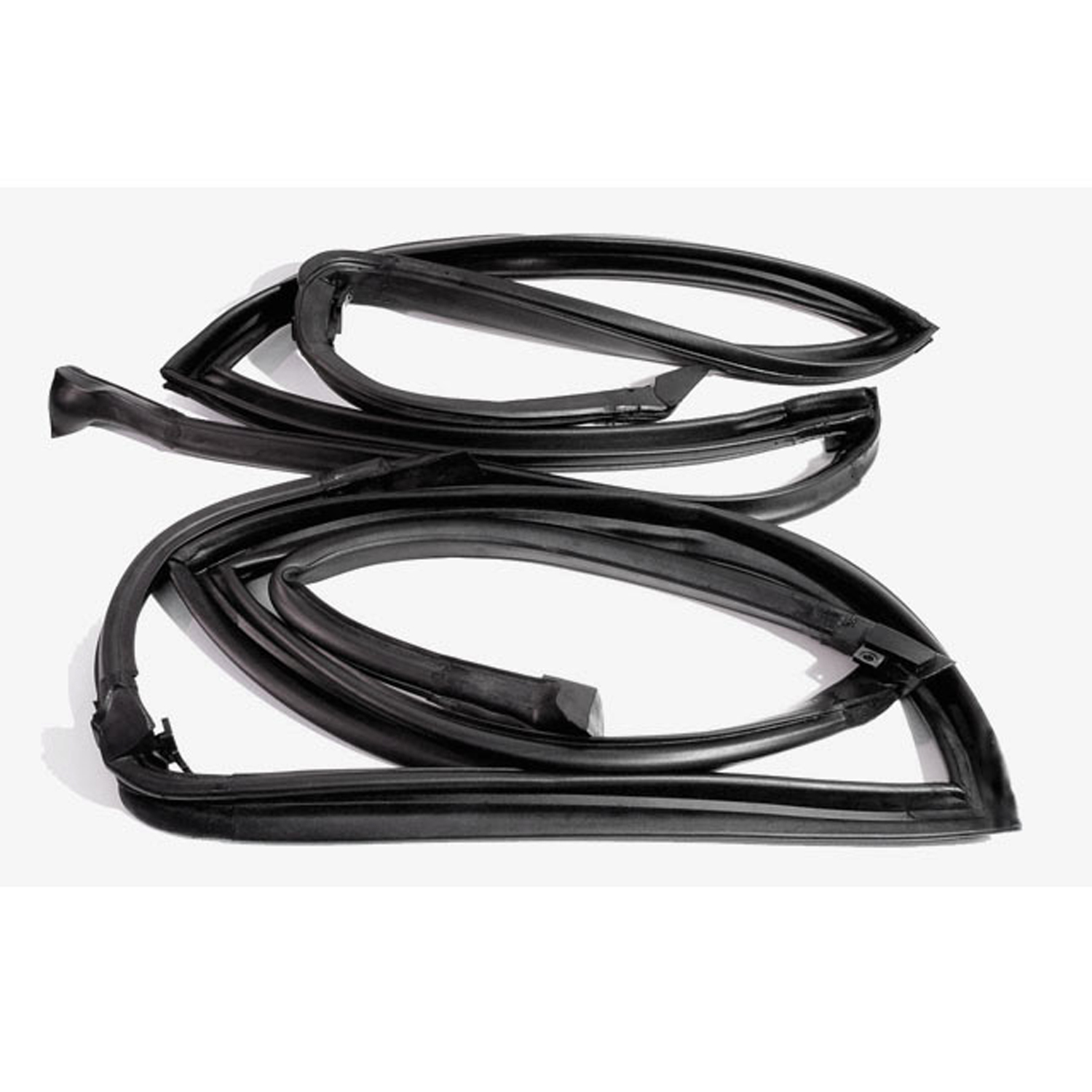 1986 Chevrolet Camaro T-Top to Body Seals. Fits models with factory T-top option-TP 7003T-Top to Body Seals. Fits models with factory T-top option. Replaces OEM #10198208/10198209. For matching T-Top Side Rail Seals, see ELP 7003. Pair
1986 Chevrolet Camaro T-Top to Body Seals. Fits models with factory T-top option-TP 7003T-Top to Body Seals. Fits models with factory T-top option. Replaces OEM #10198208/10198209. For matching T-Top Side Rail Seals, see ELP 7003. Pair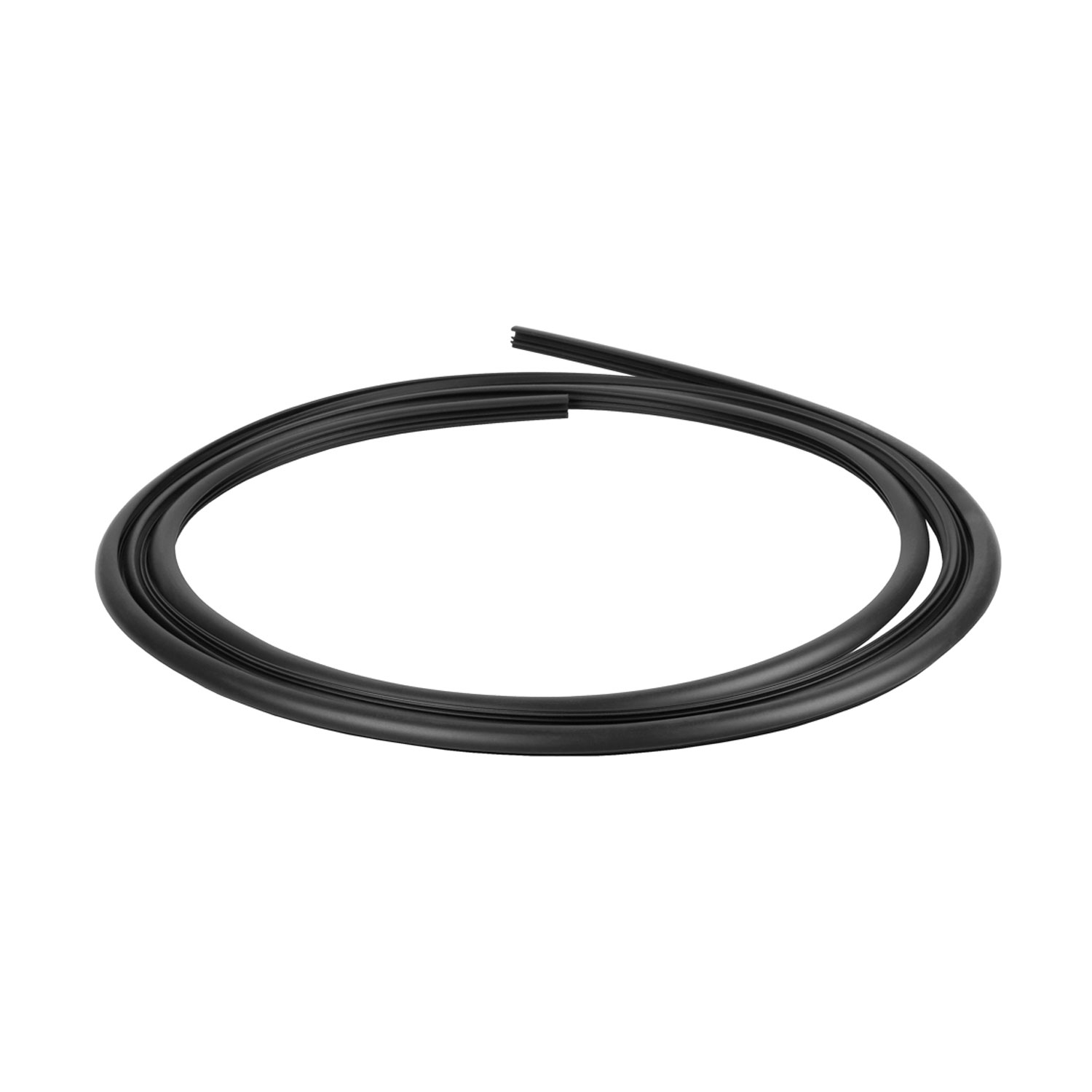 1986 Chevrolet Camaro Windshield Reveal Molding, 82-92 GM F, 82-88 GM A, 82-89 GM J, 85-91 GM N Bodies-VWS 1967-LWindshield Reveal Molding, 82-92 GM F, 82-88 GM A, 82-89 GM J, 85-91 GM N Bodies, Each.
1986 Chevrolet Camaro Windshield Reveal Molding, 82-92 GM F, 82-88 GM A, 82-89 GM J, 85-91 GM N Bodies-VWS 1967-LWindshield Reveal Molding, 82-92 GM F, 82-88 GM A, 82-89 GM J, 85-91 GM N Bodies, Each.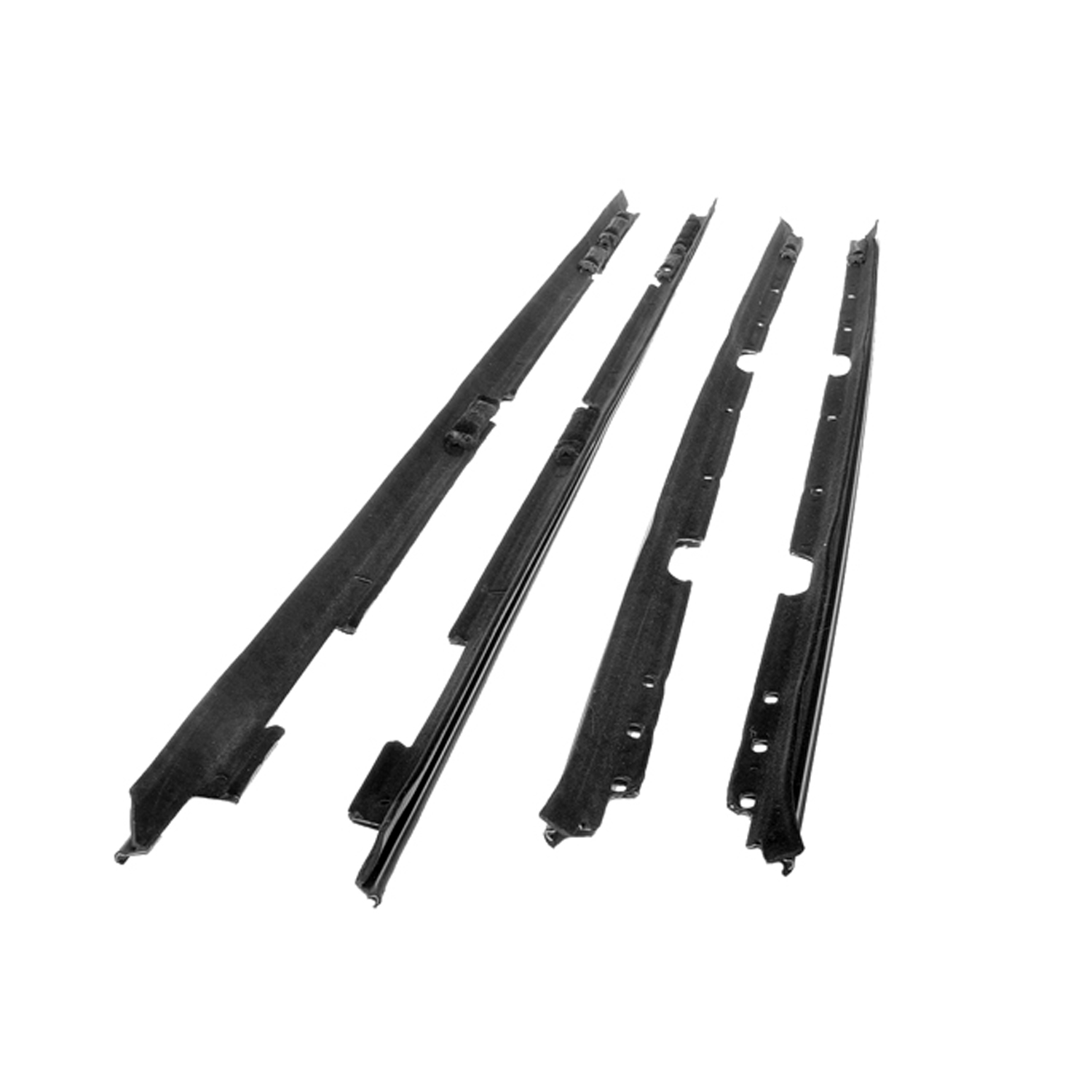 1986 Chevrolet Camaro Window sweeper kit-WC 2008-22Window sweeper kit. '82-'92 Camaro and Firebird coupe and convertible. Left and right inner and outer sweeps. Replaces OEM#'s 10124264/5 and 12394510/1. 4-piece set.
1986 Chevrolet Camaro Window sweeper kit-WC 2008-22Window sweeper kit. '82-'92 Camaro and Firebird coupe and convertible. Left and right inner and outer sweeps. Replaces OEM#'s 10124264/5 and 12394510/1. 4-piece set.Why Choose Metro?
For over 100 years, Metro Moulded Parts has been the pinnacle of quality in classic car restoration parts. Our commitment to precision and authenticity in every component ensures a perfect fit and an OEM-level appearance.
- Expert Craftsmanship & Quality: Each part is a testament to our dedication to reliability and perfection, crafted from original designs and thoroughly tested.
- Advanced Technology: We use cutting-edge techniques to create flawless, long-lasting parts that surpass others in performance.
- SuperSoft Sponge – The Ultimate Door Seal: Not only are our door seals 30% softer than competitors', but they're also guaranteed to never leak. They effectively reduce wind and road noise, enhancing your classic car's comfort and driving experience.
- Proudly American: Our parts are a product of American craftsmanship, made in the USA with a spirit of excellence and heritage.
- Unrivaled Warranty: We back our products with a 30-year industry-leading warranty, a testament to our confidence in their quality.
Join us in preserving the legacy of classic cars with parts that are crafted for perfection, not just made.

